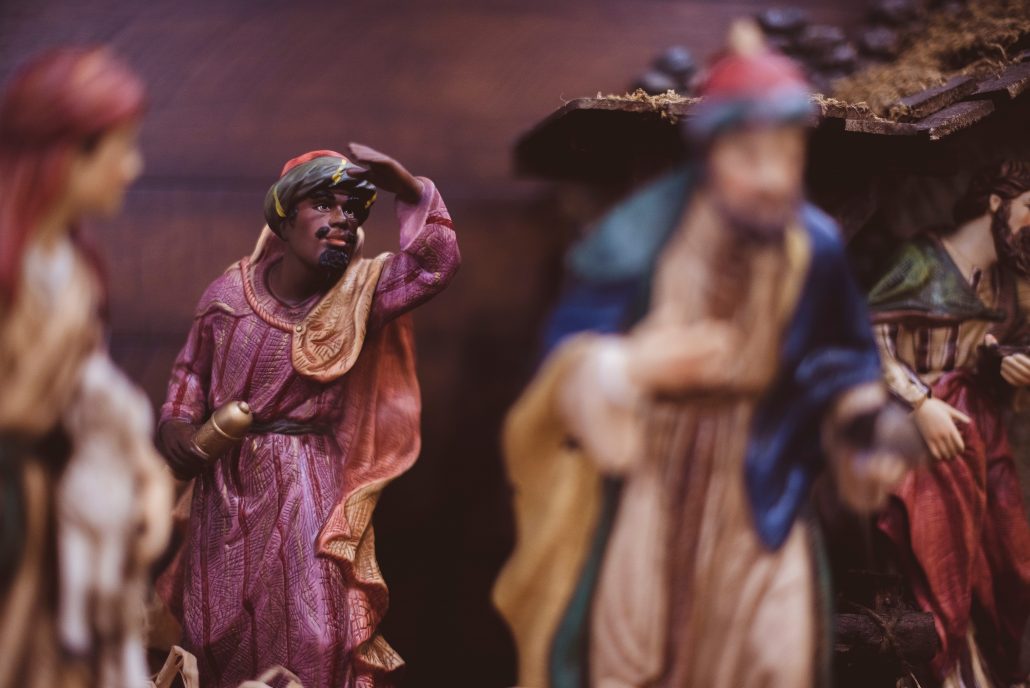May 2022 Bible Study: Tame That Spark! (It only takes a little one!)
By Major Noelle Nelson
Divisional Women’s Ministries Secretary – Golden State Division
By any chance, do you have a sibling? Multiple siblings? All boys? All girls? A mix of both? Whether it’s one or many, siblings can be wonderful! Or not…
My sister (and only sibling) and I recently revealed to our Mom just how mean we were to each other as kids. This came as a surprise to her, since she’ll tell anyone that we were “such good girls!” That’s probably because our behavior consisted of:
⦁ No hitting
⦁ No throwing things at each other
⦁ No breaking each others’ belongings
⦁ No sabotaging of dates
⦁ No nasty pranks
Little wonder my Mom thought we were just wonderful! But here’s what we DID do, and it’s a short list:
⦁ Making intense facial expressions at each other when Mom’s back was turned
⦁ Using our words to hurt each other’s feelings… the deeper the better
We would say the most hurtful things to each other, sometimes whispered, sometimes in passing, occasionally in the bathroom while the other was in the shower. (Because you’ve got a captive audience when your target is trapped in the shower!) Through our teen years we continued to use our words to hurt each other, embarrass each other, criticize, and make each other feel low and sad. Thank God we were able to make amends, albeit not until our adult years, and become the best of friends, because our words almost destroyed us.
Read James 3:2-12
“We all make many mistakes, but those who control their tongues can also control themselves in every other way. We can make a large horse turn around and go wherever we want by means of a small bit in its mouth. And a tiny rudder makes a huge ship turn wherever the pilot wants it to go, even though the winds are strong. So also, the tongue is a small thing, but what enormous damage it can do. A tiny spark can set a great forest on fire. And the tongue is a flame of fire. It is full of wickedness that can ruin your whole life. It can turn the entire course of your life into a blazing flame of destruction, for it is set on fire by hell itself. People can tame all kinds of animals and birds and reptiles and fish, but no one can tame the tongue. It is an uncontrollable evil, full of deadly poison. Sometimes it praises our Lord and Father, and sometimes it breaks out into curses against those who have been made in the image of God. And so blessing and cursing come pouring out of the same mouth. Surely, my brother and sisters, this is not right! Does a spring of water bubble out with both fresh water and bitter water? Can you pick olives from a fig tree or figs from a grapevine? No, and you can’t draw fresh water from a salty pool.”
At any given time of the year certain areas of the country tend to be at risk for forest fires. Maybe you can recall the infamous wildfire of 2020 in El Dorado, CA. It became known as the ‘Gender Reveal Fire’ because it was caused by a smoke-generating pyrotechnic device that was meant to explode with either blue or pink smoke. At this point, I’m not sure anyone even remembers what color the smoke was! What we do remember, however, is that tens of thousands of acres were burned, because of a single spark. That same spark that can create warmth and light can also blaze out of control and destroy acres, homes, and even claim lives.

Question: How does the Bible describe the tongue in James 3:6a?
(The tongue is a flame of fire)
Yes, the same tongue that can bring words like a soothing balm, can also lash out with words that could destroy another person. Our words hold a lot of weight! What we choose to say says a lot about us as a person. What comes out of our mouths has the power to heal or destroy. That’s pretty heavy. It’s not all bad news, though! We have a choice, and a way to make it happen!
- First, Make good choices about what you fill your time with.
Read Luke 6:45
“A good man brings good things out of the good stored up in his heart… for the mouth speaks what the heart is full of.”
Question: What are your favorite hobbies? Do you have a favorite movie or book?
What we spend our time thinking about, reading, watching, the activities we participate in… that’s what we are filling our minds with. All these things that we place into our minds will eventually take root in our hearts, and then manifest either through our words or actions. So, go ahead and read the books, watch the movies, chat with your friends! But always ask, would Jesus be doing this, too? Determine that you will not fill your mind and heart with things God would not be pleased with, because this WILL affect the words that come out of your mouth.
Philippians 4:8 tells us, “I’d say you’ll do best by filling your minds and meditating on things true, noble, reputable, authentic, compelling, gracious – the best, not the worst, the beautiful, not the ugly, things to praise, not things to curse.” (The Message)
- Second, work hard at controlling what you say!
Once we have filled our minds and hearts with good things, we still need to work at controlling what we say. We are human. We will always have days of feeling grouchy, irritated, or mad. But these are never good reasons to let our words recklessly fly out.
Question: Do you find it easy or difficult to control what you say? When do you find it most difficult to ‘tame your tongue’? When do you find it easiest?
Read Proverbs 16:24
“Kind words are like honey – sweet to the soul and healthy for the body.”
My Dad is a life-long member of Rotary International. The Rotarians have something called “The Four-Way Test of Rotary International.” The test says:
Of the things we think, say or do
- Is it the TRUTH?
- Is it FAIR to all concerned?
- Will it build GOODWILL and BETTER FRIENDSHIPS?
- Will it be BENEFICIAL to all concerned?
Question: How do you feel about these four questions? What would it feel like to have a person think these through before speaking to you (especially when they’re irritated or cranky!)? How would others feel if you did the same? Would your relationships be a bit, somewhat, or a lot better if you did?
If our words don’t match up to ALL FOUR of these, then we should probably re-think the words we speak! Perhaps make it a special goal this week to speak to your family in the same way you would speak to your friends: with love and grace. (We did say that we need to work hard at controlling what we say! Yes, that means sometimes it is hard!)
- Finally, allow God to transform you into a new person.
James 3:12 says, “Does a spring of water bubble out with both fresh water and bitter water? Can you pick olives from a fig tree or figs from a grapevine? No, and you can’t draw fresh water from a salty pool.” In other words, you can’t live one way but expect the results to be different. Wouldn’t it be great if people always flocked to you for your words of kindness and encouragement, rather than being one whose words are too frequently salty or bitter? It’s a huge task to transform our way of thinking and speaking! (Again, we did say that we need to work hard at controlling what we say!) But, with God’s help, it can be done.
Read Romans 12:2
“Don’t copy the behavior and customs of this world, but let God transform you into a new person by changing the way you think. Then you will learn to know God’s will for you, which is good and pleasing and perfect.”
Question: What customs and behaviors of the world do you need to walk away from? How will the people around you know that you have been transformed?
Let God take control and do the hard work! He is there to help you to make good choices about what you fill your time with, help you be successful in controlling what you say, and give you the courage to let Him transform you! Let’s not let our tongues spew hot sparks that can cause disastrous emotional wildfires. Let’s use our tongues to produce words that bring warmth and light, bringing others closer to the Lord.
Prayer time: God, open my eyes to the specific ways I need to change the way I think and speak. I want to be a flame of warmth and hope, not a dangerous spark that can cause harm. Teach me to fix my thoughts on what is true and honorable and right; things that are pure and lovely and admirable; things that are excellent and worthy of praise. Make me more like You. Amen.
Suggested prayer choruses:
⦁ Change My Heart, Oh God
⦁ Spirit of the Living God
Download a printable version of this Bible Study:



















